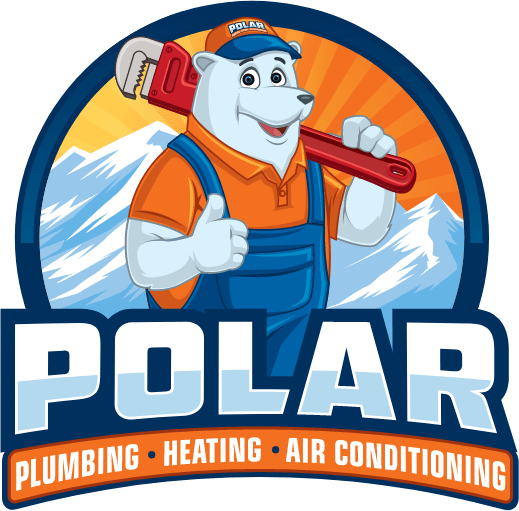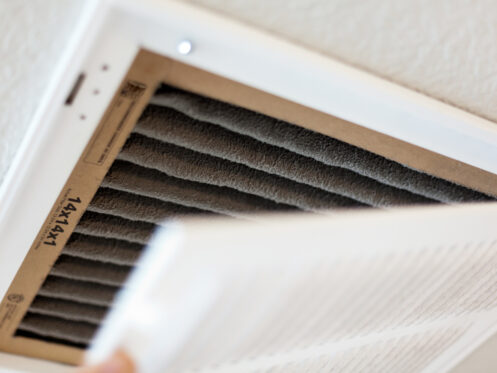With rising global temperatures, it’s crucial to understand how heat waves can affect HVAC systems and indoor air quality. Poor indoor air quality can lead to everything from mild symptoms like headaches and trouble sleeping to severe health complications. You may be surprised to learn that extremely hot weather can cause air quality issues. Here are just a few reasons why.
1. Wildfires
As wildfires become increasingly common due to periods of extreme heat, homeowners must understand their effect on indoor air quality. Not only do they produce carbon monoxide, but they also generate thick clouds of smoke that can drift for hundreds of miles. A particularly bad wildfire in Canada or the western part of the US can send smoke all the way to New York.
Wildfires add contaminants to the air that can enter your home. As the flames rage, they burn all kinds of organic and inorganic matter, creating particle pollution. Particle pollution can cause health issues when inhaled, especially if you’re breathing it in for a long time.
Homeowners should stay informed about wildfires that may impact their indoor air quality so that they can take the appropriate actions. While it’s essential to keep doors and windows closed during wildfire events, it’s equally important to maintain adequate ventilation to avoid stagnant air. Run your HVAC system’s fan on the “on” mode to circulate and filter indoor air. You can also limit activities that generate indoor pollutants, like burning candles or using gas appliances. This will reduce the overall pollutant level in your house. Finally, to be prepared for wildfires, you can have a whole-home air purifier installed to filter out harmful particles from smoke to protect your indoor air quality.
2. High Humidity
High temperatures often bring high humidity, and this can wreak havoc on your indoor air quality. Humidity refers to the amount of moisture in the air. Moist air provides an advantageous environment for mold, mildew, and dust mites to thrive, contributing to allergies, respiratory issues, and other health concerns. High humidity can also cause the air in your home to feel heavy and stifling, making you feel short of breath. Finally, it can interfere with the quality of your sleep, making tackling work or other tasks more difficult because you feel tired.
According to the Environmental Protection Agency, the humidity level in your house should be between 30% and 50% to maintain good indoor air quality. A side benefit of a well-functioning air conditioning system is that it removes moisture from the air as part of its cooling function. In fact, cooling systems can remove between 5 to 20 gallons of water from the air of a residence per day. However, during heat waves, your central air conditioner may struggle to control your home’s humidity level.
Fortunately, you don’t have to let humidity have the final say over your air quality. You can employ a variety of tactics for bringing down household humidity levels. The most straightforward solution is to have an HVAC professional install a whole-home dehumidifier. These units can be integrated into your current system and programmed to regulate humidity to the level you choose. In addition, using the exhaust fans in humidity-producing rooms, like the bathroom, laundry room, and kitchen, will vent moist air directly outside. Finally, you can talk to a professional about improving ventilation throughout your house, which will decrease humidity and improve indoor air quality.
3. Summer Smog
Urban air pollution comes in many forms. The most well-known is smog, also known as ozone pollution or atmospheric pollution. Smog can be caused by everything from car exhaust to factory emissions, and it can take days to dissipate. This is especially true in dense, tightly-packed cities without much open space. Smog can get trapped around crowded buildings and congested streets that lack airflow.
Heat and sunlight can worsen smog by encouraging chemical reactions in its pollutants. For example, a type of smog called photochemical smog forms in response to solar radiation mixing with nitrogen oxides and volatile organic compounds (VOCs). Photochemical smog is most common in the summertime during long, hot days.
Airflow can also play a role in the dangers of smog. Smoggy air is usually stagnant, so it has nowhere to go during a heat wave without any wind or rain. It simply lingers, causing air quality issues that can follow you from the outdoors to the indoors.
You can employ several strategies to maintain air quality in your home during summer smog. Some are basic lifestyle changes, such as tracking peak pollution hours and shutting your doors and windows during those times. Other fixes require more involved efforts, such as having an HVAC technician install a whole-home air purifier.
4. HVAC Issues
When operating correctly, your home’s HVAC system contributes to maintaining good air quality. However, extreme heat can significantly strain your central air conditioner, resulting in inefficiencies and breakdowns.
During a heat wave, you may run your AC unit 24/7, leading to a faster buildup of dirt and dust in the filter. An HVAC filter’s primary purpose is to keep debris from entering your air conditioning system and keep dirt and grime away from its internal components. A filthy filter will not be able to perform this function and may lead to breakdowns. In addition, when a filter becomes clogged, it reduces the airflow to your cooling system, making it less efficient and reducing its ability to cool your home to a healthy temperature.
While the primary purpose of HVAC filters is to protect your equipment, they also catch contaminates like pollen that would otherwise make their way into the air you and your family breathe. Oversaturated filters can no longer capture these airborne pollutants as well, contributing to poor indoor air quality. The general recommendation is to change air filters every 90 days. However, when your cooling system runs more than usual during sweltering weather, you may have to change them out more often.
The need to run your air conditioning continuously during heat waves to maintain a healthy indoor temperature also places excessive stress on your system’s compressors, fans, and motors. Additionally, the outdoor unit of your system is made of metal, which heats up along with the temperature. AC units are designed to handle the heat, but that doesn’t change the fact that their internal components are getting hot. They’ll have to work harder to generate the same cooling output as when temperatures aren’t so extreme.
If your cooling system hasn’t been serviced for a while, it may not be up to keeping you cool and maintaining your home’s air quality. Lack of lubricant, dirty components, loose electrical connections, and improper refrigerant levels can cause your cooling system to be inefficient or even break down during heat spells. Most experts recommend getting your AC unit serviced once a year, preferably in the spring before the dog days of summer. Regularly maintaining your air conditioner will ensure your system can handle hot weather events and promote healthy indoor air quality.
Contact the Pros
Are you struggling to maintain your indoor air quality? Contact us at Polar Plumbing, Heating & Air Conditioning in Newburgh. We offer heating, cooling, and plumbing services that range from initial installations to long-term repairs and replacements. We’re also happy to answer your questions about installing an air purification system or dehumidifier in your home.

